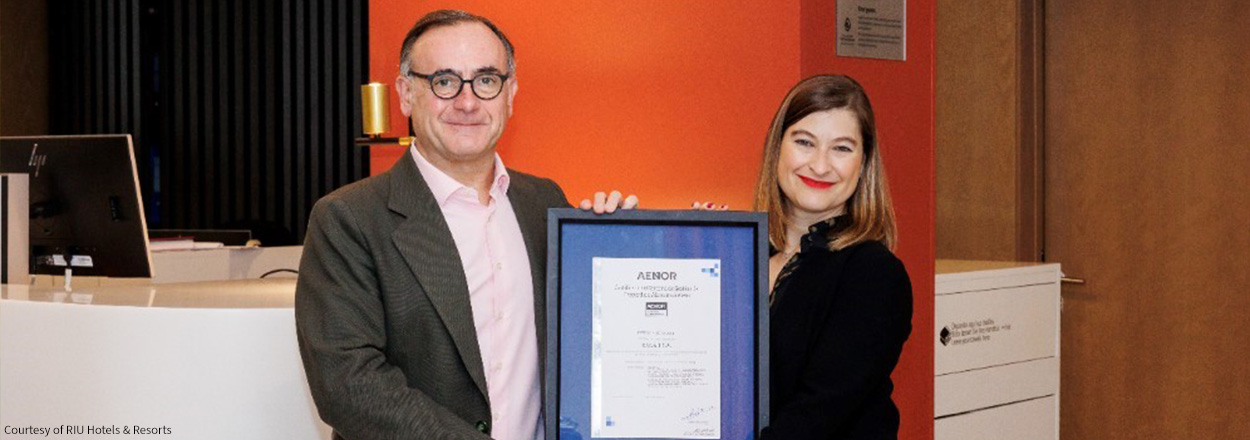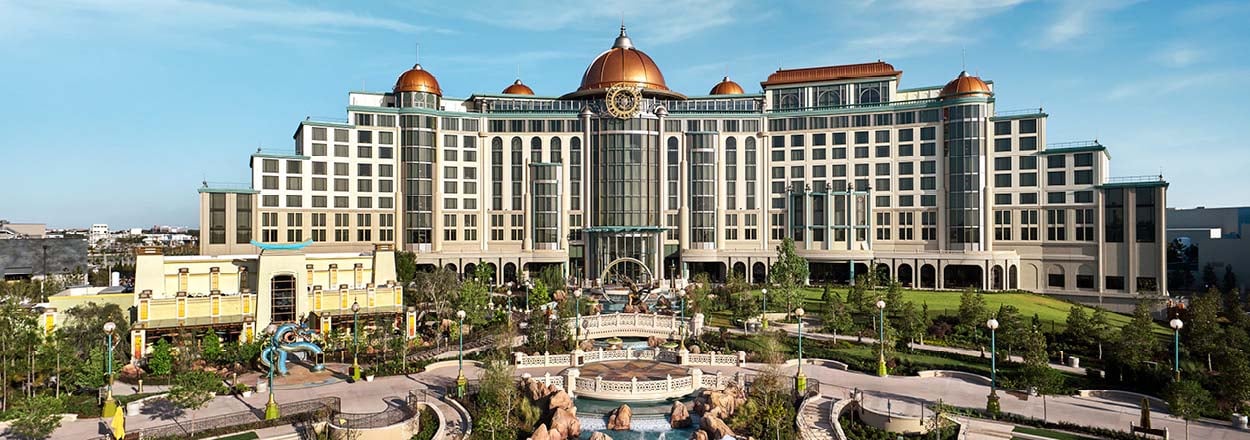In early February 2024, AENOR, the leading trust-building entity in Spain, awarded RIU Hotels & Resorts with its new Zero Food Waste certification, an achievement recognizing the brand’s commitment to fighting a problem faced by many hotels and resorts. After a rigorous verification process, three RIU properties — Riu Concordia, Riu Festival and Riu San Francisco in Playa de Palma — have received certification, guaranteeing there is no avoidable food waste on the premises.
“The hospitality industry is a sector in which a huge amount of food is consumed, and it involves the entire agri-food value chain,” said RIU in a corresponding press release. “In addition, the United Nations estimates that one-third of the food produced in the world ends up in the bin, while the incidence of severe famine is increasing, and that almost half of child deaths are related to malnutrition. That’s why the fight against food waste is one of the UN’s Sustainable Development Goals, specifically, the second: ‘Zero Hunger.’ This alliance is a challenge that aims to combat a global problem with enormous environmental, social and financial implications, since, among many other advantages, reducing waste has a high direct benefit in terms of cost savings.”

To become certified, the three RIU properties underwent prolonged evaluation, control and monitoring to ensure their practices were up to snuff. Following guidelines from AENOR, the hotels learned to improve their processes for reducing leftover food waste. One major contributor to this change was the implementation of food waste inventories, which allow kitchens to define and strategize which actions they’ll take to reduce and prevent waste. All this is trackable by RIU, ensuring the brand stays on track with its overall goals.
RIU’s AENOR certifications are valid for three years with annual reviews. Currently, the brand is working to certify its properties in Mallorca, while Riu Playa Park and Riu Bravo are expected to undergo certification when they reopen for the 2024 summer season.
“This is a major challenge for RIU with which it aims to contribute to a global problem,” said the press release. “To do this, it relies on its kitchen and dining room teams, which are the main protagonists of these changes. AENOR stresses that the fundamental pillars are reduce, reuse, redistribute and recycle. Therefore, it is essential to avoid overproduction and adapt it to demand, optimizing operations to be more efficient, since one of the most critical places for food waste is buffets.”






comments